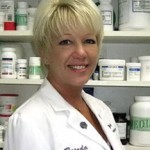Andropause: Male Menopause?
Yes, men go through” the change”, too! And why wouldn’t they? As the human body ages, hormones start to decline, this is not a gender-specific phenomenon. Although other hormones are involved, Testosterone levels are usually the primary focus when men start experiencing a decline in overall health and well-being.
The appropriate term for decreased production of testosterone or deficiency is hypogonadism. When Testosterone levels are optimal, life is good. When levels are sub-optimal, symptoms can manifest themselves in many ways. Most people associate insufficient testosterone with a diminished sex drive. However, testosterone also affects lean body mass, strength and stamina, bone density, mental focus, mood, motivation, energy, erectile dysfunction, hair loss, and more. Correcting these levels can have dramatic positive effects in these areas as well as a restored sexual desire, increased muscle mass, improved bone health, decreased fat storage, as well as improved overall well-being and quality of life.
So how does one know if he has low testosterone levels? Here are some questions to ask:
1. Do you have a decreased interest in sex?
2.Have you noticed difficulty in maintaining physical performance?
3.Do you lack energy?
4.Do you feel your muscles have shrunk? Or have not increased in size despite exercise or weight training?
5.Have you become apathetic towards life in general?
6.Are you sad, grumpy, or more short-tempered than usual?
7.Do you have difficulty staying awake past early evening?
8.Do you have difficulty staying focused at work?
9.Do you have trouble remembering things?
10. Have you noticed an increase in belly fat and a harder time losing it?
**It is important to note that some of the above questions can be related to issues other than low testosterone and can be further evaluated by your doctor.
For many, low testosterone levels have more of an impact than just physical well-being. It can also have a negative effect on how you relate to people and your ability to handle stress. If you’ve noticed you are less than loving to your lover or life partner, quickly irritated by those around you, or have difficulty paying attention when someone speaks, you may have an insufficient amount of testosterone. The purpose of these questions and mentioning other areas of impact is to prompt proper testing and a physical exam to determine if you might be suffering from hypogonadism.
Your doctor will most likely order blood tests to determine your testosterone levels. It is very important to check both total testosterone and free testosterone. The level of free testosterone is indicative of what is available for the body to use. Additionally, before starting any type of testosterone replacement, other blood tests should be performed to determine Prostate Specific Antigen, Sex Hormone Binding Globulin, DHEA and DHEA sulfate, Lutenizing Hormone and Follicle Stimulating Hormone levels. It is also noteworthy to mention the benefit of checking a man’s estradiol and progesterone levels. Too much testosterone can be converted to estrogen via aromatase enzyme activity or because the liver is failing to clear the excess estrogen. This could be due to heavy alcohol consumption or due to the use of certain medications.
There are other reasons testosterone levels might be low. Some medications can actually lower testosterone production. It is possible that too much free testosterone is being bound by Sex Hormone Binding Globulin due to aging or illness. (This is evident when a man’s free testosterone level is low but his total testosterone is within normal limits of the reference range.) If either the hypothalamus or the pituitary gland is not functioning properly total testosterone levels can be low. There are situations where the testicles simply lose their ability to produce testosterone. DHEA level may be low therefore the conversion to testosterone is not present. Additionally, disease, infections, street drugs, food or genetic defects can affect testosterone production.
Testosterone replacement therapy is available in several different dosage forms. There are some that require daily dosing such as oral capsules, troches, and topical cream or gels. Injections are usually given once weekly or once every two weeks. And long-acting pellets are implanted under the skin every three to four months. There is no one-size-fits-all approach for testosterone replacement and there are advantages and disadvantages with each form. Each patient must choose the best option for him based on individual preference, patient response, as well as lab values. Investigative education is the key to choosing the best dosage form to start with. Close monitoring of symptoms and blood work results will help determine whether a change in therapy is needed. Communication with your Compounding Pharmacist or health care provider will supply answers to your questions along the way.
For more information, call
Saveway Compounding Pharmacy
at 302-369-5520 or 1-877-225-
8469, or visit them at 31 Albe Drive,
#1, Newark, DE 19702.
Brenda Pavlic is a nationally certified pharmacy technician and co-owner of SaveWay Compounding Pharmacy in Newark, DE. With more than twenty-five years of pharmacy experience she has furthered her career with extensive training and education in Pharmacy Compounding, Women’s Health, Cosmeceutics, Pain Management, Aseptic and Veterinary Compounding. She has published articles and presented seminars both locally and nationally to healthcare practitioners. Her experience and education provide her with skills needed to develop formulations that ease medication administration, improve compliance and ultimately result in positive outcomes for patients.
SaveWay
Compounding Pharmacy
31 Albe Drive; Unit 1
Newark, DE 19702
Ph. (302)369-5520
Email:
[email protected]
Website:
www.savewaypharmacy.com
Hours: M-F 9am—6pm
Sat 10am—2pm
Closed Sunday
Testimonials:
You have saved my life and restored normalcy! Thank you. –BJ
You are a breath of fresh air. I felt all along my whole system was out of whack and now I am excited to move things forward in a whole body approach. –JF
It is an absolute miracle what you and your company have done for me. I am pain free for the first time in years. I can’t thank you enough.–BH



